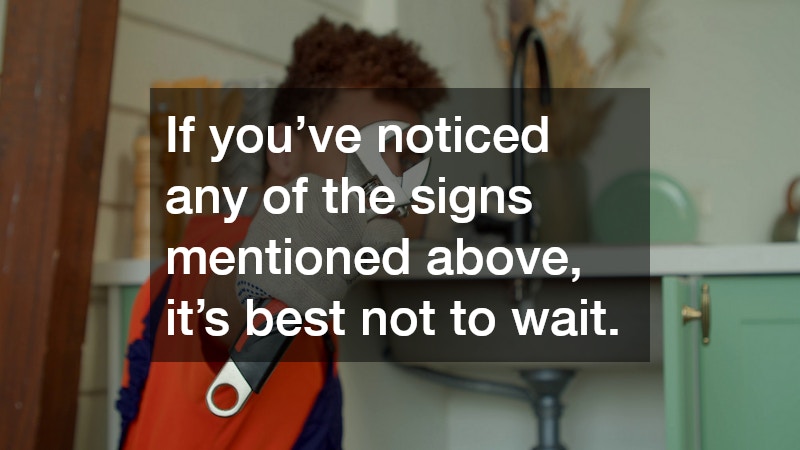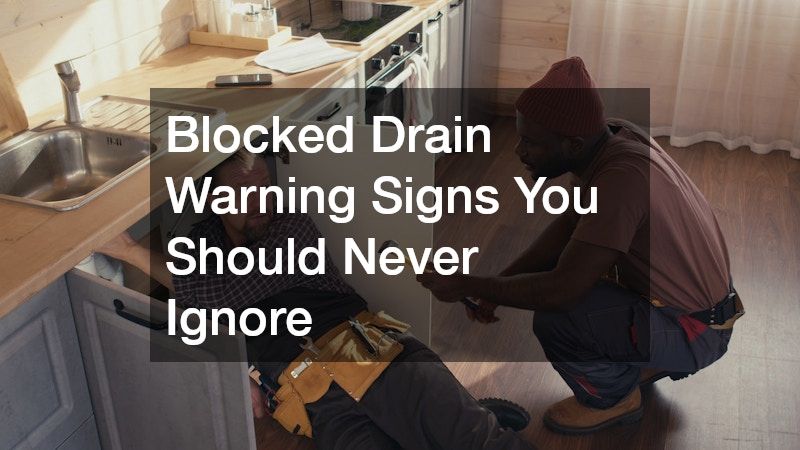Blocked drains are a common household issue, but their warning signs are often overlooked until they become a major problem. Recognising the early indicators of a drainage issue can save you time, money and stress.
Whether it’s in the kitchen, bathroom or laundry, paying attention to the way your plumbing behaves can help you avoid more serious complications down the line.
Slow Draining Water
One of the earliest signs of a potential drainage problem is water that drains more slowly than usual. You might notice this in the shower, bathtub or kitchen sink. When water lingers longer than normal, it typically indicates a partial blockage somewhere in the pipe.
Many people initially dismiss slow drainage, assuming it will clear on its own. However, ignoring it can lead to a complete blockage, which may require professional intervention. The issue might be as simple as hair or food particles, but it could also involve a more complex obstruction deeper in the plumbing system.
If left untreated, slow drainage can cause water to pool and create unpleasant smells or even damage surfaces around the affected fixtures. This is why it’s important to address the issue early before it escalates.
Unpleasant Odours from Drains
If a foul smell is coming from your drains, it’s not just an inconvenience — it’s a strong indicator that something is wrong. Organic material caught in the pipes will begin to decompose, releasing gases back into your home. These odours can be particularly noticeable in bathrooms and kitchens.
Persistent smells that don’t resolve with cleaning are a warning sign that a blocked drain could be the cause. The smell may worsen over time as more debris accumulates, making the problem harder to resolve without expert assistance.
Ignoring these odours can also affect indoor air quality and your family’s health, especially if mould or bacteria develop as a result of the blockage.
Gurgling Sounds in Pipes
Strange gurgling noises coming from your drains, toilet or pipes suggest trapped air in the system — a common symptom of a developing blockage. This sound is produced when air is forced through water due to restricted flow within the pipe.
While the noises might seem minor or even amusing at first, they often signal that water isn’t moving freely. Left unchecked, the blockage could escalate, potentially leading to burst pipes or wastewater backup into your sinks or tubs.
It’s worth noting that gurgling noises can also indicate ventilation issues in the plumbing system, but combined with other warning signs, they should be taken seriously.
Frequent Toilet Clogs
Occasional toilet blockages happen in every home. However, if you find yourself reaching for the plunger more often than usual, it may point to a bigger issue. Frequent clogs often stem from a larger obstruction further down the drainage line.
This kind of persistent problem shouldn’t be ignored, especially if multiple drains in the home begin clogging around the same time. It may mean the main sewer line has a blockage, which requires urgent attention.
Ignoring this could result in sewage backups, which pose serious health risks and can cause costly damage to your property.
Water Backing Up
Water backing up into sinks, tubs or showers is a red flag that your drainage system is under strain. This is typically the result of a blockage that’s preventing water from exiting the system as it should.
For instance, you might flush the toilet and notice water rising in the shower, or run the laundry and see water pooling in the kitchen sink. These are clear signs that the pipes are interconnected and that a blocked drain in one area is affecting the entire system.
Such backups can quickly become an emergency situation, leading to water damage and unsanitary conditions in your home.
Pools of Water Near Fixtures
If you notice pools of water forming around floor drains, toilets or outdoor gullies, it may indicate that the water has nowhere to go. Standing water can lead to slippery surfaces, structural damage and mould growth if not addressed promptly.
These symptoms are not just annoying — they can compromise your property’s safety and hygiene. Investigating these pools promptly can help prevent further complications.
If the water persists despite attempts to dry the area, it’s a sign that professional help is needed to locate and fix the blockage or leak.
When to Call a Professional
If you’ve noticed any of the signs mentioned above, it’s best not to wait. While some minor issues may be cleared with household remedies, persistent or recurring symptoms should be assessed by a qualified plumber.
Trying to fix a deep blockage without the right tools or knowledge can make matters worse, potentially damaging your pipes or causing water to back up further into your home.
A professional will be able to identify the exact cause of the blockage and provide an effective, long-lasting solution. If you suspect a drain is blocked, don’t ignore it. Addressing the issue early can save you from much bigger problems in the future.
.





